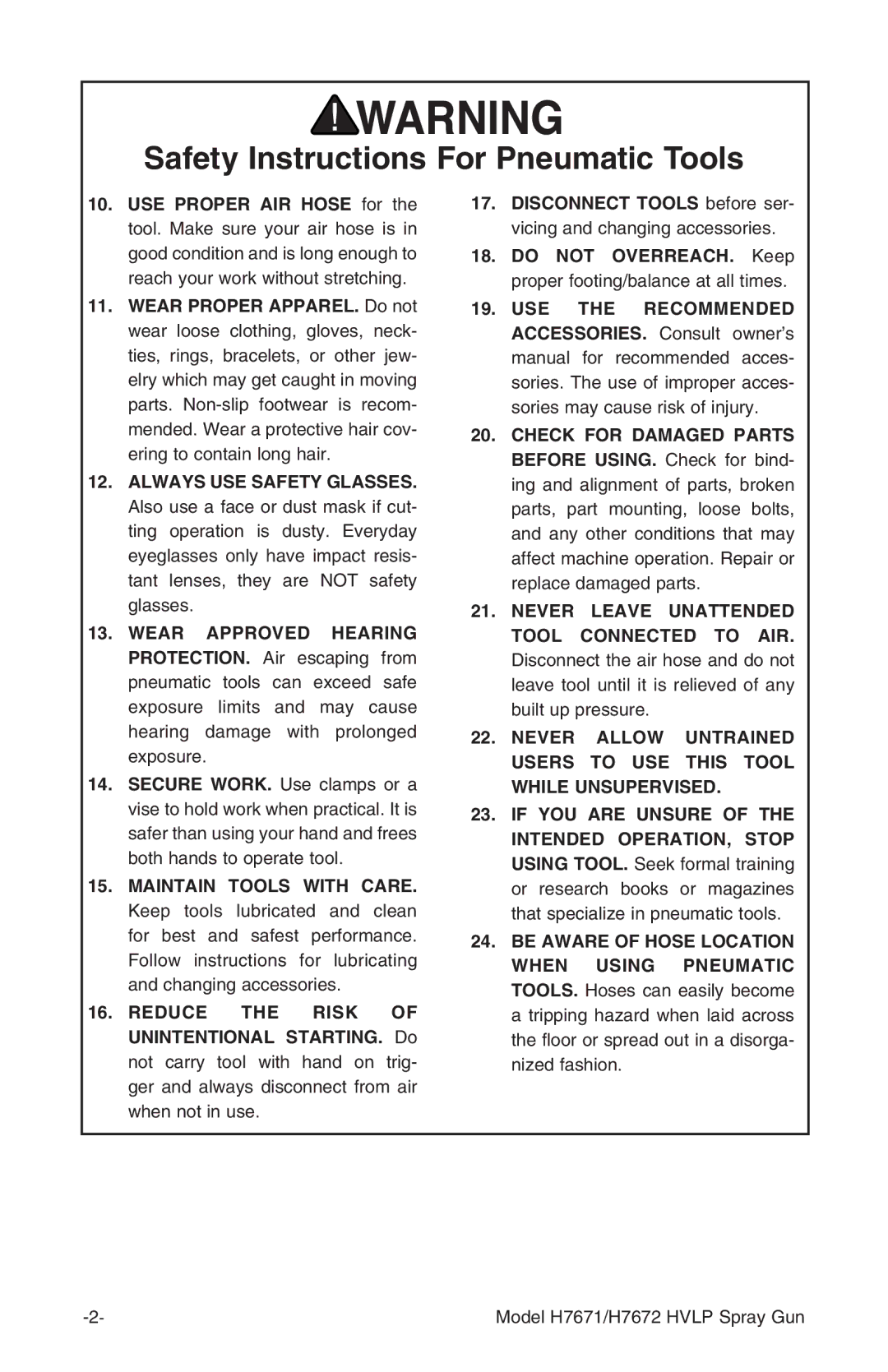
Safety Instructions For Pneumatic Tools
10.USE PROPER AIR HOSE for the tool. Make sure your air hose is in good condition and is long enough to reach your work without stretching.
11.WEAR PROPER APPAREL. Do not wear loose clothing, gloves, neck- ties, rings, bracelets, or other jew- elry which may get caught in moving parts.
12.ALWAYS USE SAFETY GLASSES.
Also use a face or dust mask if cut- ting operation is dusty. Everyday eyeglasses only have impact resis- tant lenses, they are NOT safety glasses.
13.WEAR APPROVED HEARING PROTECTION. Air escaping from pneumatic tools can exceed safe exposure limits and may cause hearing damage with prolonged exposure.
14.SECURE WORK. Use clamps or a vise to hold work when practical. It is safer than using your hand and frees both hands to operate tool.
15.MAINTAIN TOOLS WITH CARE.
Keep tools lubricated and clean for best and safest performance. Follow instructions for lubricating and changing accessories.
16.REDUCE THE RISK OF UNINTENTIONAL STARTING. Do not carry tool with hand on trig- ger and always disconnect from air when not in use.
17.DISCONNECT TOOLS before ser- vicing and changing accessories.
18.DO NOT OVERREACH. Keep proper footing/balance at all times.
19.USE THE RECOMMENDED ACCESSORIES. Consult owner’s manual for recommended acces- sories. The use of improper acces- sories may cause risk of injury.
20.CHECK FOR DAMAGED PARTS BEFORE USING. Check for bind- ing and alignment of parts, broken parts, part mounting, loose bolts, and any other conditions that may affect machine operation. Repair or replace damaged parts.
21.NEVER LEAVE UNATTENDED TOOL CONNECTED TO AIR.
Disconnect the air hose and do not leave tool until it is relieved of any built up pressure.
22.NEVER ALLOW UNTRAINED USERS TO USE THIS TOOL WHILE UNSUPERVISED.
23.IF YOU ARE UNSURE OF THE INTENDED OPERATION, STOP USING TOOL. Seek formal training or research books or magazines that specialize in pneumatic tools.
24.BE AWARE OF HOSE LOCATION WHEN USING PNEUMATIC TOOLS. Hoses can easily become a tripping hazard when laid across the floor or spread out in a disorga- nized fashion.
Model H7671/H7672 HVLP Spray Gun |
